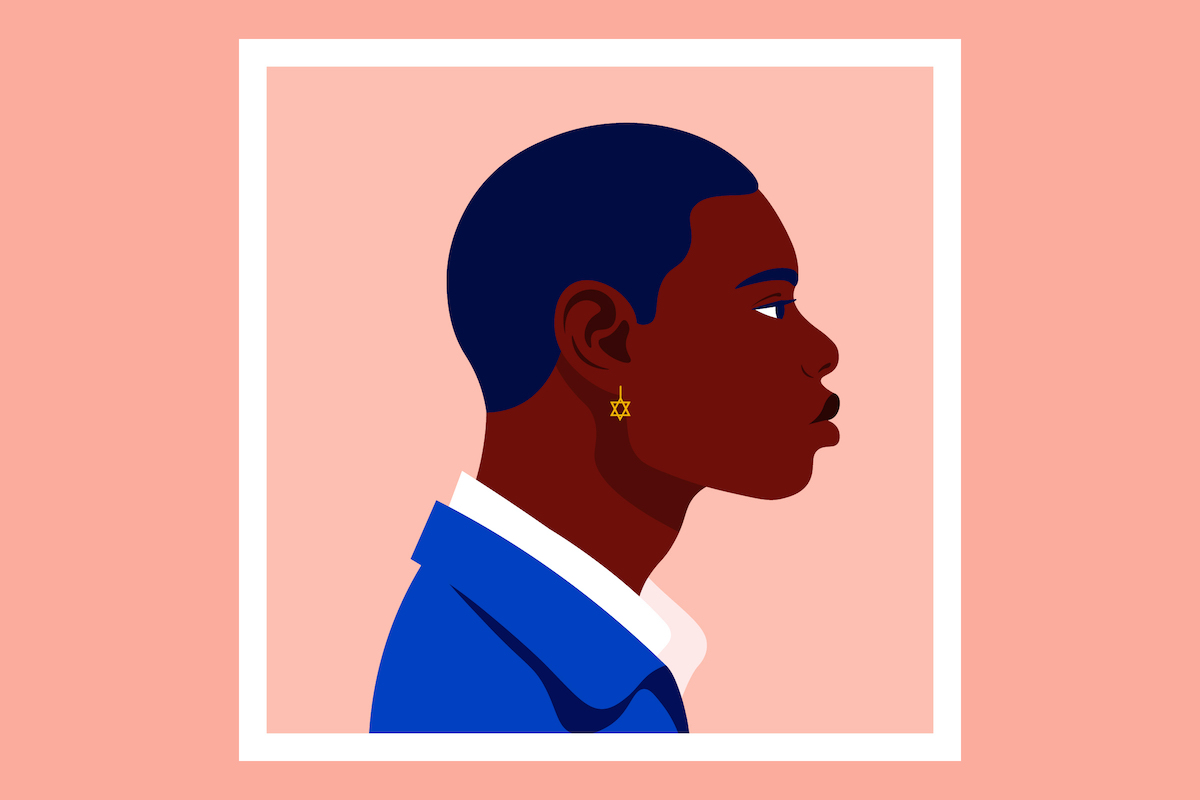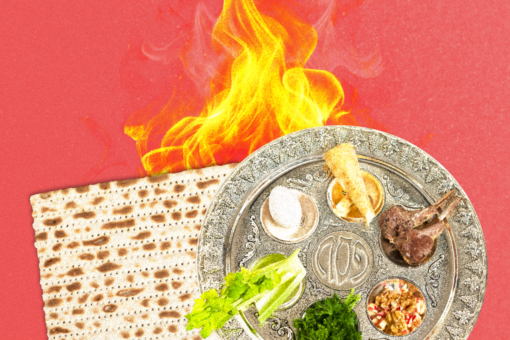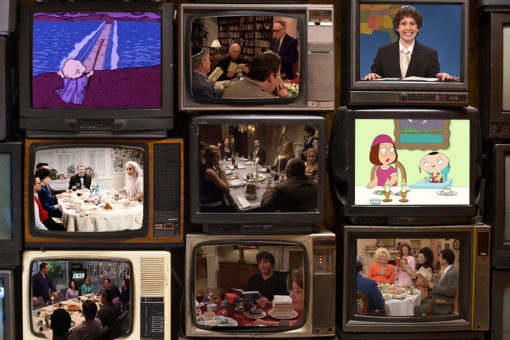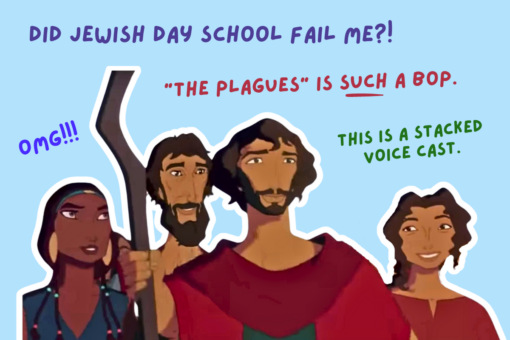If I had a nickel for every time someone has asked me wildly inappropriate questions like, “When did you convert?” or, “Are you adopted?” I would probably have enough money to pay for my undergraduate without relying on FAFSA.
As an Ethiopian Jew living in America, it can be frustrating having to constantly feel like your identity is under suspicion by not only other Jews but also people who have absolutely no knowledge of Jews or Judaism. I’ve complained alongside my Moroccan, Yemeni, and Persian friends countless times about the different microaggressions and plain ignorance of our fellow Jews and non-Jews alike; this can range from a friend’s grandparent making an inappropriate remark to being held up at the airport as the TSA agent looks over your last name once again. I remember in eighth grade history class, hearing my teacher profess how “the Holocaust was stupid because Jews are essentially white.” As a young person who still had no clue how to react when an authority figure behaved ignorantly, all I could do was sit there in silence.
I will not be silent any longer.
For a lot of people, the idea of “Jew” equals “white,” and that leads to a range of annoying to downright insulting encounters while navigating the spaces where we should feel we belong.
In America, many of us are faced with the threat of anti-Semitism that scars the whole of our community, but we’re also faced with the ingrained and monstrous beast that is racism. It happens like this: You overhear terms like “shvartze,” the Yiddish word for black that is considered a slur against Black people, whispered while meeting a friend’s extended family. Your mother is harassed by a random security guard as she picks you up from working Sunday school at the J.C.C. The police harass you following a cousin’s bar mitzvah. These are just some of the forms of harassment that I and my loved ones have experienced in spaces where all Jews are supposed to be able to safely congregate. More often than not, members of our communities are put in precarious positions in regards to dealing with bigotry that presents itself in spaces meant to for all Jews.
Many of the civil rights enjoyed in this country were pushed for by Black Americans and Jews; the least that Jews of Color deserve is being able to fully be embraced by our fellow Jews. This country gave European Jews fleeing persecution a chance to legally have protection from centuries of violent suppression in their former homes. Ironically, this occurred as countless individuals of Indigenous, African, and Asian descent were exploited by this new land of “opportunity,” a land that would ultimately allow for assimilation for white Jews that would lead to the establishment of what we today deal with in the form of ashkenormativity.
Ashkenormativity is a unique form of eurocentrism that has found its way into Jewish culture. In a twisted way, the “whiteness” that became a hallmark of power due to European colonialism has been able to become a boon for white-passing Jews, in particular Ashkenazim. While in much of actual Europe, anti-Semitism is so deeply rooted that even having white skin doesn’t necessarily enable you with privilege, in the unique case of America, it allows for a situational point of privilege that changes based on the whim of the majority. The same way that in so much of society, we have defined white people as the “default” person, a similar sentiment has translated into defining the Ashkenazi as the “normative” Jew.
For Jews of Color — some of whom are Ashkenazi themselves though still face racism based on the color of their skin — we are not only asking for our fellow Jews to use the privilege they do have in non-Jewish society to better the lives of others; we are demanding to be equal members of our own Jewish communities.
This is not only an American issue. In Israel, even though our Jewishness is no longer seen as a threat, we still face the brutal realities of racism. The slayings of Solomon Teka and Yehuda Biadga last year have caused widespread communal outrage and have brought to the forefront the issues of racism and police brutality in Israeli society. Out of the six Ethiopian Israeli men murdered over the last five years, only the death of one was prosecuted and the sentence only carried the weight of three years. It took until this past January for Haymanot Judaism, the religious practices unique to Beta Israel (Ethiopian Jews), to be fully acknowledged by the Chief Rabbinate as an authentic form of Judaism, despite the ruling of late Chief Rabbi Ovadia Yosef in the early 1970s and decisions made in 2014 to recognize Haymanot Judaism. This means that for the last few decades, many Ethiopian Jews living in Israel either had to convert to Rabbinic Judaism or jump through hoops to be able to engage in major life events like marriage.
Systemic racism from both religious and policing structures in Israel have only worked to attempt to assimilate Ethiopian Jewry in a way that is grossly inappropriate. This includes incidents like the distribution of birth control to Ethiopian women without giving them full disclosure on the effects, throwing out blood donations given by Ethiopians, and sending Ethiopian teens off to boarding schools after settling into Israel. These were all on top of police practices like racial profiling as well as racism from fellow Israelis. Now we are seeing the younger generation taking an active and aggressive stance in protecting themselves and their rights as fellow Israeli citizens against the structures that their own parents couldn’t fight against.
The list of injustices goes on: Out of the many issues of disgusting racism that have occurred against the Mizrahi Jews, one of the most chilling is the disappearances of the over 1000 Yemeni children in the 1950s that until the last two decades went widely under-investigated. Systemic segregation was used as a weapon against many Mizrahi Jews who came to live in Israel. Segregation, religious intolerance, economic inequality, and harassment led to the formation of HaPanterim HaShhorim, the Israeli Black Panthers, in the ’70s to fight against the discrimination faced by Mizrahi and Sephardi Jews. Even today as society improves, there is an education and wealth disparity between Mizrahi and Ashkenazi Jews.
Historically, there has also been a bad habit of the Ashkenazim attempting to triumph their own traditions as greater or more authentic, leading to times when Ethiopian and Indian Jews have been pressured to “convert” as if they weren’t already Jewish.
Even the very way we define Zionism needs to change. Theodor Herzl, the Austrian Jew largely credited as “the father of political Zionism,” was an assimilationist. His viewpoint on what the Jewish state of the future would become was fashioned in a way that only took in the perspective of the non-religious Ashkenazim who frequented his circles. Herzl also supported the Ottoman government against the Armenian rebellion for independence, which resulted in the Armenian genocide.
The issue at the heart of the Zionism that dominates our culture is that the person who we are so quick to give credit to left out a huge portion of our people and didn’t intend on ever including us. Crediting a single person for the dream of Jewish liberation and sovereignty overlooks the fact that our culture, people, and faith thrives because of the fluidity and strength of our many traditions. We should instead credit our families, communities, leaders, and more importantly, ourselves, with the continued survival of our people.
We come from a tradition that calls for us to actively reinterpret what we were left to inherit. For our community to effectively come together, we need to have more hard discussions and push for change. At this point we should not have to ask; we demand our fellow Jews to give us an actual spot at the table.
Header image design by Grace Yagel. Base illustration by Maria Voronovich/Getty Images.



